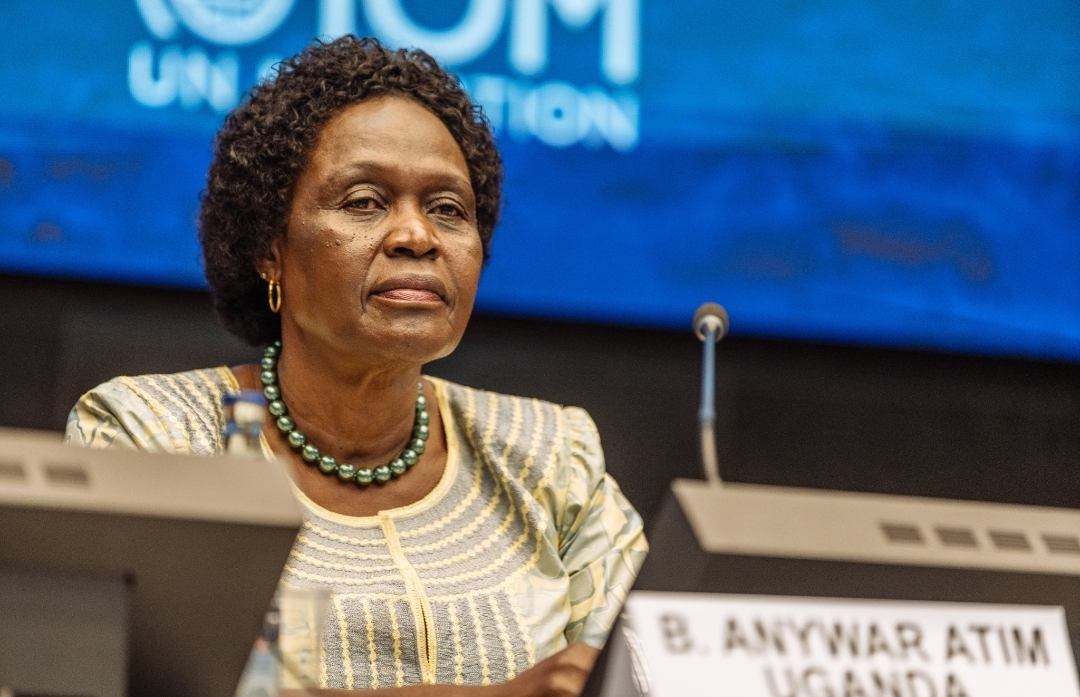The Ministry of Water and Environment is working on regulations to guide the planting of trees aimed to attract carbon credit.
Speaking ahead of the 27th Conference of Parties (COP) of the United Nations Climate Change conference- UNFCCC, the Minister for Water and Environment Beatrice Anywar warned local government leaders and people against entering agreements to plant trees in order to earn Carbon Credits.
Carbon Credits is funding provided by companies and individuals who pollute the environment to other parties to facilitate conservation efforts. The funds are sometimes intended to remove from the environment an equal amount of carbon emissions by the funding country or company or to prevent the emissions.
Addressing the press at Uganda Media Center on Friday, Minister Anywar said that they have received reports about groups and individuals persuading Ugandans to commit to plant a certain amount of trees and earn some money.
These people, she says, then negotiate for carbon credit with bigger companies in carbon emitting countries.
Anywar says government is working on regulations to guide on who engages in carbon credit and how the trees and other resources are valued.
In 1992, at a UN organized Earth Summit in Rio de Janeiro, Brazil, the UNFCCC was adopted and members agreed to stabilize greenhouse gas concentrations in the atmosphere to prevent dangerous interference from Human activity on the climate system.
Uganda signed the UNFCCC in 1992 and ratified the same on 8th September 1993, hence becoming a full party of the 198 parties of the UNFCCC. The COP27 shall take place at Sharm el-Sheikh in Egypt from 6th to 18th November 2022.
Uganda’s delegated to the conference is headed by the first Deputy Prime Minister Rebecca Alitwala Kadaga. At the conference, member states of the UNFCCC agree on the collective efforts to mitigate the impact of climate change globally. These strategies which include financing conservation efforts are often negotiated before the conference.
However, the Minister for Water and Environment Beatrice Anywar says that Uganda has not actively participated in negotiations due to undisclosed limitations albeit having demands to table. For instance, Anywar says, Uganda wants a nature based solution where Uganda’s natural resources like water bodies and forests which are key in averting the effects of climate change are valued and paid for by high emitting parties.
She further called for compensation for the loss and damage caused by mudslides, flood and drought, which are a result of climate change.
While Africa consists of low emitting countries, they suffer most effects of climate change. Large economies account for 57% of the total global emissions while all African nations combined emit 3% of the total global greenhouse gas emissions, despite housing 17% of the global population.
Anywar says that the developed countries are guilty of emissions and hence climate change should willfully and without delay, finance conservation efforts by the African continent who are literally cleaning up their mess.
At the 15th COP in 2009, developed countries committed to mobilize 100 billion USD per year by 2020 to fund meaningful mitigation of climate actions in developing countries. The promise is yet to be met, with a 2020 UN report showing that the $100-billion target was out of reach.
Meanwhile COP 27 comes at a time when the European Union-EU Parliament passed an “emergency resolution” on 15th September calling for halting of extractive activities in protected ecosystem in the East African Crude Oil Pipeline. The resolution was highly protested by the Ugandan government and her neighbors as Uganda looks forward to extracting its first oil by 2025.
Beatrice Anywar says that as the world seeks to transition from oil to other forms of energy such as electricity, the process should be fair and just.
She says the developed countries which are raising a red flag on Uganda’s oil exploration plan developed through Industrialization and extraction of their natural resources and as such, Uganda should be left to extract its resources.
The UN Resident Representative Elsie Attafuah thanked Uganda and Africa at large for their efforts toward combating the effects of climate change. She reiterated the commitment of external developers to finance Africa’s efforts. She says, this year’s COP 27 is about implementation.
According to the 2018 report by African Development Bank-AfDB on the climate change impacts on Africa’s Economic Growth, the projected loss and damage costs for Africa between 2020 and 2030 amounts to $440.5 billion and $289.2 billion in the high warming scenario and low warming scenario respectively.

